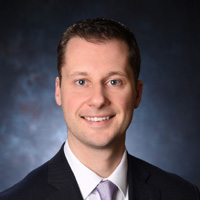Money Problems That Come with Financially Successful Careers
For people like doctors, lawyers and engineers, success takes time ... and sacrifices along the way. Once you finally make it, you probably have the urge to start living large, but that could be a mistake.


Profit and prosper with the best of Kiplinger's advice on investing, taxes, retirement, personal finance and much more. Delivered daily. Enter your email in the box and click Sign Me Up.
You are now subscribed
Your newsletter sign-up was successful
Want to add more newsletters?

Delivered daily
Kiplinger Today
Profit and prosper with the best of Kiplinger's advice on investing, taxes, retirement, personal finance and much more delivered daily. Smart money moves start here.

Sent five days a week
Kiplinger A Step Ahead
Get practical help to make better financial decisions in your everyday life, from spending to savings on top deals.

Delivered daily
Kiplinger Closing Bell
Get today's biggest financial and investing headlines delivered to your inbox every day the U.S. stock market is open.

Sent twice a week
Kiplinger Adviser Intel
Financial pros across the country share best practices and fresh tactics to preserve and grow your wealth.

Delivered weekly
Kiplinger Tax Tips
Trim your federal and state tax bills with practical tax-planning and tax-cutting strategies.

Sent twice a week
Kiplinger Retirement Tips
Your twice-a-week guide to planning and enjoying a financially secure and richly rewarding retirement

Sent bimonthly.
Kiplinger Adviser Angle
Insights for advisers, wealth managers and other financial professionals.

Sent twice a week
Kiplinger Investing Weekly
Your twice-a-week roundup of promising stocks, funds, companies and industries you should consider, ones you should avoid, and why.

Sent weekly for six weeks
Kiplinger Invest for Retirement
Your step-by-step six-part series on how to invest for retirement, from devising a successful strategy to exactly which investments to choose.
Professions that take a long time to develop into fruitful careers come with unique financial challenges.
For example, doctors sometimes make bad decisions with money. Part of the issue is they get caught in a perfect storm of circumstances that lead to poor financial choices.
In my experience, financial advisers can be just as inattentive with their personal money as other professionals. Let me first explain the challenges many professionals face, and how they relate to financial advisers.
From just $107.88 $24.99 for Kiplinger Personal Finance
Become a smarter, better informed investor. Subscribe from just $107.88 $24.99, plus get up to 4 Special Issues

Sign up for Kiplinger’s Free Newsletters
Profit and prosper with the best of expert advice on investing, taxes, retirement, personal finance and more - straight to your e-mail.
Profit and prosper with the best of expert advice - straight to your e-mail.
Doctors and Money
While it is true that doctors tend to make very healthy incomes, they usually have a long road to get to that point. That road is filled with medical schools and the corresponding debt they accumulate in order to start practicing medicine. Once they finally break free from the shackles of medical school and residency it’s time to start living the doctor lifestyle, they so often think.
There is a presumption that doctors make large incomes, which can be true. But often they are hampered by hefty student loan payments. They may not earn as much as their paychecks would lead you to believe. That doesn’t matter to many M.D.s; they put in a great deal of time and effort and they feel it is time to start enjoying the fruits of their labor.
Have you ever seen a surgeon driving a Honda Civic? Didn’t think so. When they pull up to the hospital or medical offices, they are usually driving some type of expensive luxury car. Their kids often go to private schools. They live in nicer neighborhoods.
Although doctors are very intelligent when it comes to their field of medicine, being an expert in medicine does not translate to being an expert in personal finances. There is a false equivalence that since someone is an expert at one thing — medicine, law, engineering — they are also an expert in a totally unrelated thing, money.
Other Professionals and Financial Advisers
Many different professionals follow a similar path to doctors. Lawyers go through years of school, and it takes even more years to develop a practice or grow their careers within an established firm. They are also experts in their field, but that doesn’t always transfer over into handling their money.
That’s the challenge with high-earning professionals. Being intelligent and making a lot of money does not mean you know what to do with it when you have it. These careers also take more time to start bearing fruit. That extra time puts the professional behind on their savings goals, which creates an even greater need to be really good savers when they start making money.
The same can be said about your financial advisers.
It takes many years to hone your craft and become an expert in the field of personal finance. It also takes many years to build a profitable practice. During those years, there is a lot of delayed gratification and spending. Once an adviser’s income starts to grow, it is easy to fall into the trap of buying into the lifestyle one has always wanted for themselves. Advisers are usually always around money, given the nature of the job. That also skews one’s perception of the world. If their clients all have million-dollar portfolios, live in nice houses and drive fancy cars, that might begin to seem normal to them.
A successful financial adviser can face many of the same challenges that their clients can face. Does this make them bad financial advisers? I think it’s quite the opposite: They can relate to and better understand the challenges successful professionals face.
The Takeaway
We all hear about 20-year-old tech billionaires. They still face financial challenges, but they are a rare breed. Most people take a long time to start earning big paychecks, and there are challenges with making smart and savvy choices with those hard-earned dollars.
Whether you are a small-business owner who has grown your company one customer at a time, or a doctor who took years to go through school and training, the challenges are the same. It took a long time to get to where you are, and many of you want to celebrate the success by treating yourselves and your family. It is important to balance out the short-term spending with longer term financial goals and strategies in mind.
Find someone who has had a similar path as you but also has the knowledge and expertise to help you beyond just understanding the struggle. Professionals would be wise to find a mentor to help with career planning as well as a trusted adviser to help with financial planning.
Securities offered through LPL Financial, Member FINRA/SIPC. Investment advice offered through SFG Wealth Management, a registered investment advisor. SFG Wealth Management and Synergy Financial Group are separate entities from LPL Financial.
Profit and prosper with the best of Kiplinger's advice on investing, taxes, retirement, personal finance and much more. Delivered daily. Enter your email in the box and click Sign Me Up.

Joseph C. Conroy is a CERTIFIED FINANCIAL PLANNER™ professional who is passionate about helping his clients pursue their goals. He founded Harford Retirement Planners to provide objective advice and knowledge to his clients. By partnering with an independent broker dealer, it allows Joe to sit on the same side of the table as his clients. It is this experience, working with many individuals over the years from many backgrounds, which inspired Joe to write the book "Decades & Decisions."
-
 Nasdaq Leads a Rocky Risk-On Rally: Stock Market Today
Nasdaq Leads a Rocky Risk-On Rally: Stock Market TodayAnother worrying bout of late-session weakness couldn't take down the main equity indexes on Wednesday.
-
 Quiz: Do You Know How to Avoid the "Medigap Trap?"
Quiz: Do You Know How to Avoid the "Medigap Trap?"Quiz Test your basic knowledge of the "Medigap Trap" in our quick quiz.
-
 5 Top Tax-Efficient Mutual Funds for Smarter Investing
5 Top Tax-Efficient Mutual Funds for Smarter InvestingMutual funds are many things, but "tax-friendly" usually isn't one of them. These are the exceptions.
-
 Social Security Break-Even Math Is Helpful, But Don't Let It Dictate When You'll File
Social Security Break-Even Math Is Helpful, But Don't Let It Dictate When You'll FileYour Social Security break-even age tells you how long you'd need to live for delaying to pay off, but shouldn't be the sole basis for deciding when to claim.
-
 I'm an Opportunity Zone Pro: This Is How to Deliver Roth-Like Tax-Free Growth (Without Contribution Limits)
I'm an Opportunity Zone Pro: This Is How to Deliver Roth-Like Tax-Free Growth (Without Contribution Limits)Investors who combine Roth IRAs, the gold standard of tax-free savings, with qualified opportunity funds could enjoy decades of tax-free growth.
-
 One of the Most Powerful Wealth-Building Moves a Woman Can Make: A Midcareer Pivot
One of the Most Powerful Wealth-Building Moves a Woman Can Make: A Midcareer PivotIf it feels like you can't sustain what you're doing for the next 20 years, it's time for an honest look at what's draining you and what energizes you.
-
 I'm a Wealth Adviser Obsessed With Mahjong: Here Are 8 Ways It Can Teach Us How to Manage Our Money
I'm a Wealth Adviser Obsessed With Mahjong: Here Are 8 Ways It Can Teach Us How to Manage Our MoneyThis increasingly popular Chinese game can teach us not only how to help manage our money but also how important it is to connect with other people.
-
 Looking for a Financial Book That Won't Put Your Young Adult to Sleep? This One Makes 'Cents'
Looking for a Financial Book That Won't Put Your Young Adult to Sleep? This One Makes 'Cents'"Wealth Your Way" by Cosmo DeStefano offers a highly accessible guide for young adults and their parents on building wealth through simple, consistent habits.
-
 Global Uncertainty Has Investors Running Scared: This Is How Advisers Can Reassure Them
Global Uncertainty Has Investors Running Scared: This Is How Advisers Can Reassure ThemHow can advisers reassure clients nervous about their plans in an increasingly complex and rapidly changing world? This conversational framework provides the key.
-
 I'm a Real Estate Investing Pro: This Is How to Use 1031 Exchanges to Scale Up Your Real Estate Empire
I'm a Real Estate Investing Pro: This Is How to Use 1031 Exchanges to Scale Up Your Real Estate EmpireSmall rental properties can be excellent investments, but you can use 1031 exchanges to transition to commercial real estate for bigger wealth-building.
-
 Should You Jump on the Roth Conversion Bandwagon? A Financial Adviser Weighs In
Should You Jump on the Roth Conversion Bandwagon? A Financial Adviser Weighs InRoth conversions are all the rage, but what works well for one household can cause financial strain for another. This is what you should consider before moving ahead.